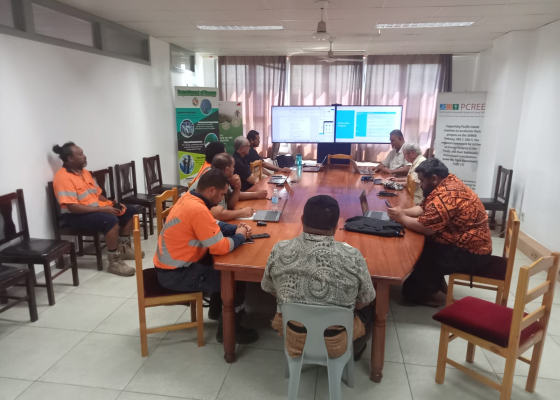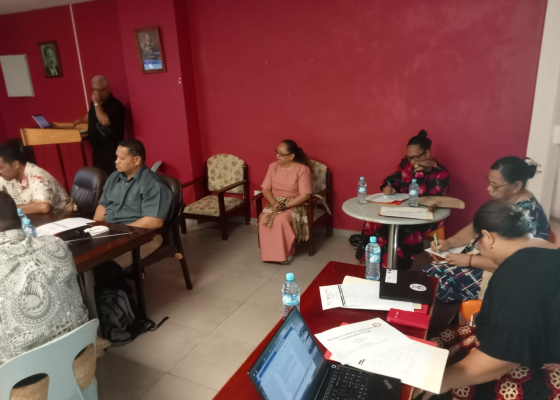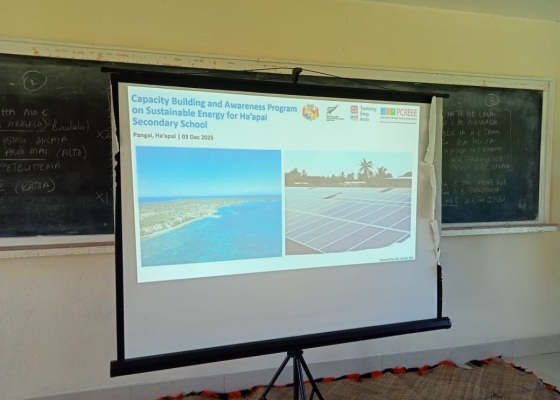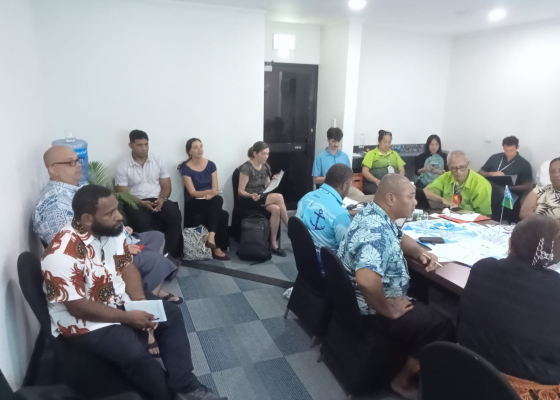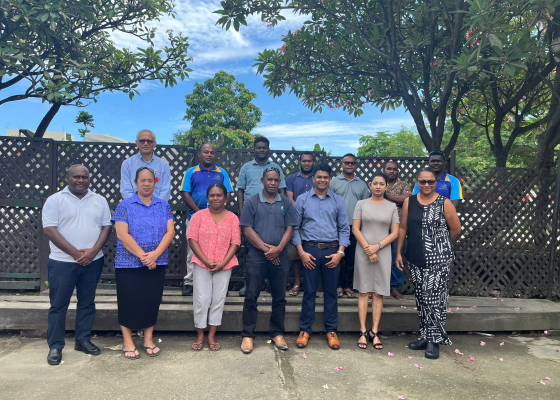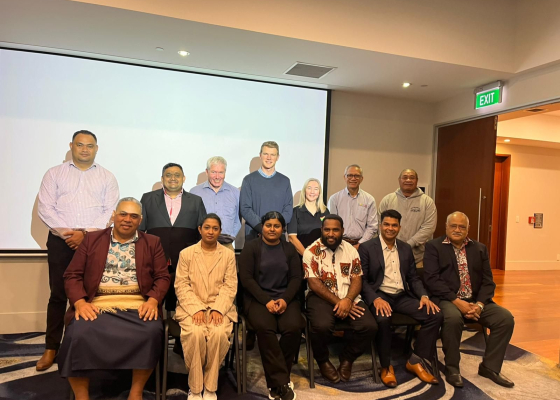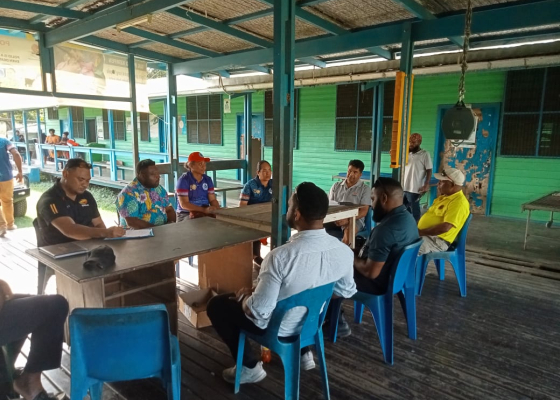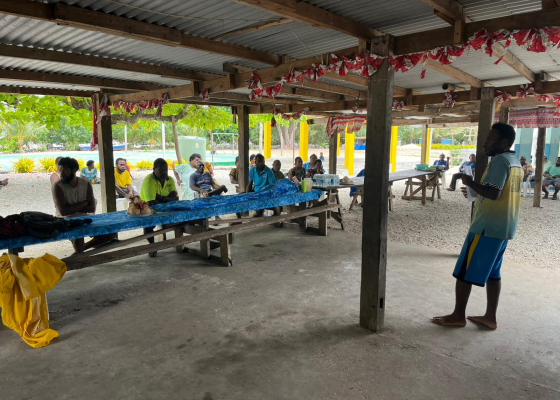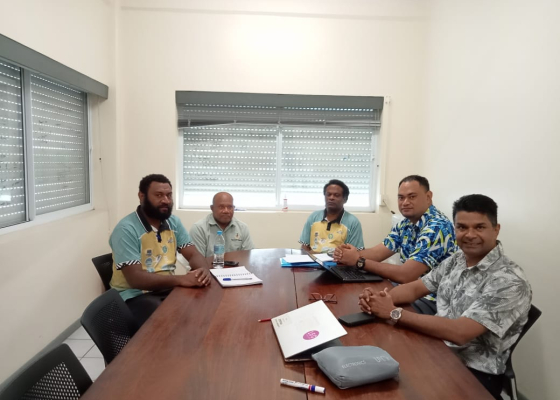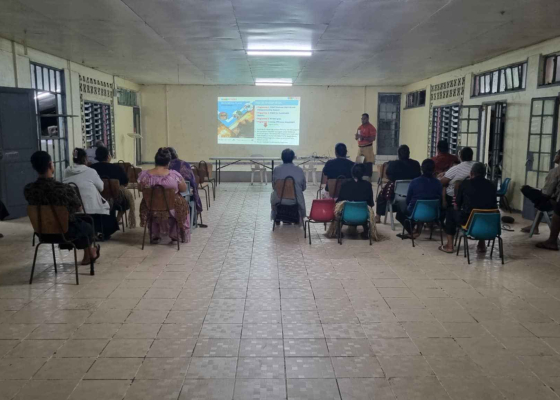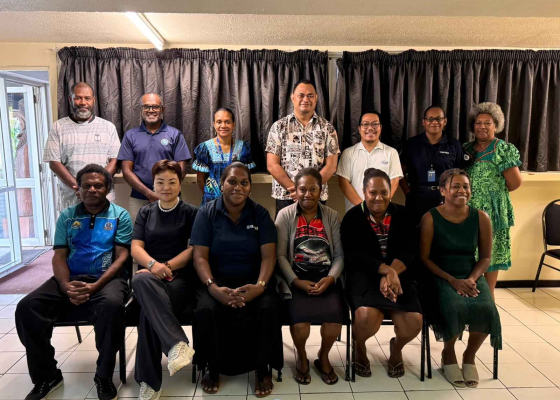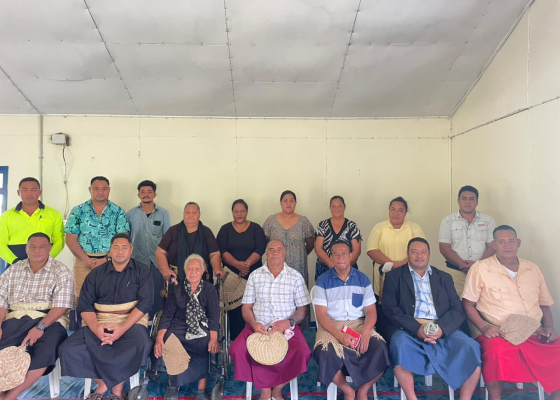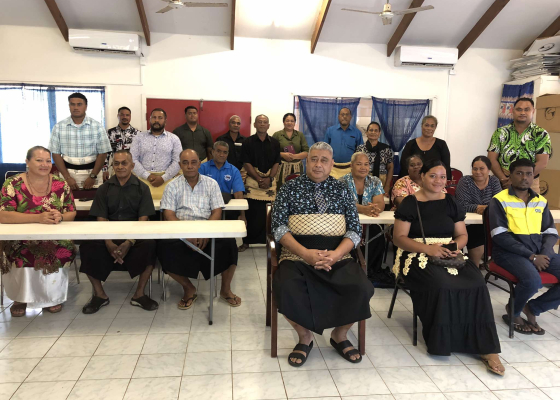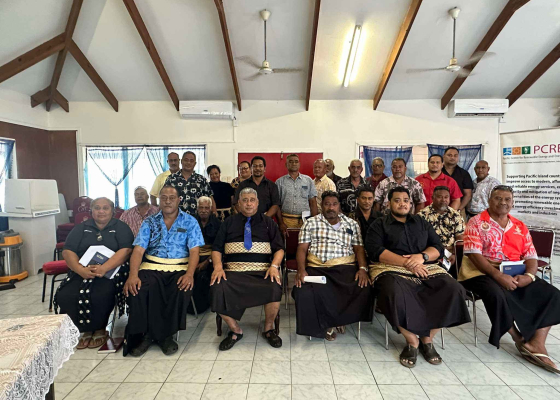General Background
Energy challenges
The Pacific Island Countries and Territories (PICTs) are facing the challenges of access to affordable and reliable energy services, energy security and climate change mitigation and adaptation simultaneously. The success of sustainable development, circular economy and climate resilience strategies highly depend on a transformation in the energy sector. The challenges of PICTs can be summarised as follows:
- Access to modern, reliable and affordable energy services remains a central challenge to approximately 6.3 million persons in a region with less than 10 million inhabitants. This includes also lack of access to modern cooking services.
- PICTs are vulnerable to the volatile prices of global oil markets due to their almost exclusively dependence on imported refined oil products to meet their power generation and transportation needs.
- Very high electricity tariffs and generation costs represent a burden for the economy, private households and local businesses in most PICTs. In 2010 the region’s utilities had consumer electricity tariffs that averaged between USD 0.39 and 0.44/kWh, respectively, for household (<200 kWh/month) and commercial (<500 kWh/month) users.
- There is a widening demand–supply gap in urban areas in many PICTs.
- The financial status of some utilities is weak due to high diesel generation costs and technical and commercial efficiency losses.
- Low energy efficiency in buildings, appliances, industrial processes and technical and commercial grid losses result in power cuts and load shedding in some countries;
- Frequent power cuts have led to the installation of private diesel generators in some countries;
- The available RE&EE potentials remain largely untapped;
- Increasing extreme weather events caused by climate change increasingly impact infrastructure and energy planning;
- There is lack of a nexus approach and cross-sectoral cooperation which links energy provision with productive activities and small-scale industrial development in key island sectors (e.g. agriculture, fishery, tourism, creative industries);
- There is a weak link between applied research and entrepreneurship to develop and disseminate innovative adapted island energy solutions;
Sustainable energy opportunities
To address these challenges, many PICTs have introduced ambitious targets to scale-up sustainable energy investments as part of their sustainable development, circular economy and climate policies (e.g. SDGs, INDCs). By making use of domestic renewable energy potentials and putting in place energy efficiency measures, PICTs can reduce their overall fossil fuel consumption and thus improve their energy security, while at the same time promoting clean economic growth and lessening dependence on costly, imported petroleum fuels.
The region is endowed with a broad range of renewable energy sources (bioenergy, solar, wind, hydro, tidal and geothermal energy). There is significant potential for EE improvements with regard to lighting, appliances, buildings, transmission and distribution and industrial processes particularly in urban areas. Small-scale decentralized renewable energy (RE) solutions can be cost-effective options to satisfy the needs of the rural population located on remote micro-islands or rural areas. RE&EE solutions can be an important driver to increase the productivity and competitiveness of industrial key sectors - such as food processing, fishery, manufacturing of high value niche products and services and tourism.
The development of the sustainable energy potentials is interrelated with a broad range of positive socio-economic impacts (e.g. reduction of fossil fuel imports, increased affordability for low-income groups through the reduction of electricity consumer prices in the long term, improved financial situation of utilities, increased competitiveness of companies and industry, reduction of stand-by diesel generators, creation of green jobs).
Growing national and regional sustainable energy markets and value chains offer also new income and job opportunities for domestic energy manufacturing and servicing businesses. In many regions the sustainable energy sector is considered as a future growth sector, which offers business and employment opportunities particularly for Small and Medium Sized Enterprises (SMEs). SMEs create jobs and are essential for the overall development of the economy, accounting for 99% of the number of businesses worldwide. They show great potential as instruments for economic growth and development through increased productivity, enterprise creation and employment rates.
Justification for the creation of PCREEE
However, despite first sustainable energy success stories in a number PICTs, the achievements are still limited and not equally distributed between the countries. The overall implementation progress is still at lacking and has not transformed into "large-scale" investments or a vibrant industrial sector with domestic value and job creation effects. The energy transformation in PICTs continues to be hindered by a bundle of interrelated barriers and constraints (e.g. policy and regulatory, technical, financial, human and institutional capacity, knowledge, awareness, investment and business) which need to be addressed.
For example, the areas of small to medium-sized grid-connected renewable energy plants and decentralized renewable energy solutions, as well as energy efficiency improvements in different sectors (e.g. buildings, grid losses, appliances, industry) need a further boost. The increasing sustainable energy investments and the introduction of appropriate regulations and standards go hand in hand with the need of local technical capacities. The weak innovation and productive capacities of the domestic sustainable energy industry are hindering the further uptake of sustainable energy markets already. In contrast to fossil fuel based solutions (e.g. diesel generators), the supply and logistical chains for sustainable energy solutions remain underdeveloped and products and services are either not available of lack of quality.
Quality issues and the perception that solutions are not mature have been a backdrop for various renewable energy technologies (e.g. solar thermal, SHS). Moreover, the lack of domestic energy businesses has led to severe sustainability and maintenance issues in various PICTs. Countries have introduced demand-side stimulating sustainable energy programs but have not sufficiently taken into account supplier-side and business development activities. Therefore, the domestic value and job creation effects along the value chain of sustainable energy investments (manufacturing and distribution, project planning and development, construction and installation, operation and maintenance, decommissioning and recycling) remains often very limited. Equipment and services continue to be imported.
To accelerate the efforts on national level, the PCREEE needs assessment identified a clear need to strengthen the current regional support framework. CROP agencies are assisting PICTs already effectively in addressing parts of the describe barriers through various regional projects and activities (e.g. coordination, policy advisory, (pre-) investment support for projects). However, PICTs expressed a clear need for a "one-stop-shop" which creates technical links and synergies between the fragmented activities and ensures the sustainability of project results beyond their life-time.
The assessment identified major regional thematic opportunity gaps in the areas of capacity development, knowledge and data management, awareness raising as well as investment and business promotion in the sustainable energy sector. Based on the identified gaps the creation of the Pacific Centre for Renewable Energy and Energy Efficiency (PCREEE) was recommended. In this context, PICTs emphasized the need for a centre which cooperates closely with the private sector and is delivering industry relevant products and activities.
Upcoming Events
-
03/25/2026 to 03/26/2026
-
03/30/2026 to 04/03/2026
-
04/09/2026 to 04/10/2026
-
04/27/2026
-
04/27/2026 to 04/29/2026







